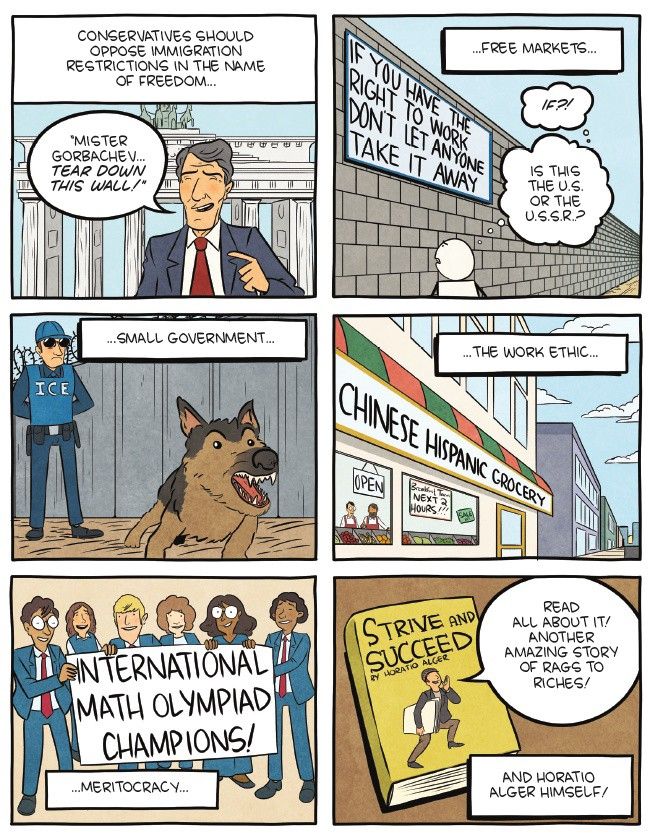Free Market = Open Borders
A truly free market means free movement

It’s a counter-intuitive, but economically obvious. The answer to foreigners taking your jobs is to let them immigrate. As long as foreigners remain in their country their wages remain low. Your entire factory will pick up and go. The minute they immigrate, their wages go up, and they become consumers. They’re less likely to take your job, and they create more jobs. This is how a truly free market works.
What we have in globalization isn’t a free market at all. We have free movement of money and goods (ie capital) but not free movement of labor. So where does this lead?
Multinational companies establish factories in the cheapest place possible and then ship those goods over long distances and across borders. The hardening of borders was critical to this change, defining the edges of different regulatory spaces and limiting the movement of labor. These combined to create pools of low-wage workers in areas with minimal environmental and labor regulations (Violent Borders¹²⁷)
Do you know what you call pools of low-wage workers? Fish in a barrel. Globalization made poor workers fish in a barrel. Capitalists could come and set up factories confident that we’d have to take what we can get. And we did. And we got fatter, but we’re still in a barrel. It’s still not a free market, because we’re still not free.
And, honestly, closed borders have been pretty bad for the west as well. Take America. Have you wondered why your GDP and stock market are going up, but 1 out of 3 of you are living paycheck to paycheck? It’s because we don’t have a free market.
As manufacturing jobs left the United States and Europe through outsourcing, corporations were able to get the same work done at a fraction of the cost. It hurt workers in the United States, but was great for corporations. It drove up the overall GDP.
But for the emergent middle class of the postwar era, globalization was disastrous. As manufacturing jobs moved overseas (the manufacturing industry shrank from almost 30 percent of US jobs in 1970 to 8 percent in 2012), many of the victories unions had won — high wages, substantial pensions, health care benefits — were lost. The workers who remain in the United States today are paid far less than unionized workers were a generation ago. (Violent Borders¹²⁹)
What we have is a situation where factories can move easier than human beings. So the capitalists are getting rich, and workers are getting screwed. And, to be honest, western workers are getting screwed the most. China has lifted itself up out of poverty. China is nice. China has better infrastructure than America now. It’s the American worker that has been played the most, and their reaction is making things worse.
The reaction to this real problem is to keep foreigners out! Less immigration. The economic answer, however, is more. Much more. The truly free market has truly a free movement of people. Open borders.
There is actually no economic reason for borders. None. If borders were open the world would essentially DOUBLE world GDP. That’s how much we are constipating the free market. The reasons for closed borders are not economic, nor are they ‘national security’. It’s just racism (every country is racist) and the very human fear of destabilization, plus companies and politicians that get very rich keeping us fish in barrels.
And yet if we truly want to advance capitalism and free markets, the workers of the world should unite. Borders keep us separate where business owners can exploit us. If we can move, if we can vote with our feet, overtime wages and labor standards should stabilize, human resources can go where they’re most needed and we’ll have a truly free market.
Think about it for a moment. Once you get past the counter-intuitiveness, it’s quite clear. A free market means freedom. Freedom for people, not just goods. A free market means open borders.